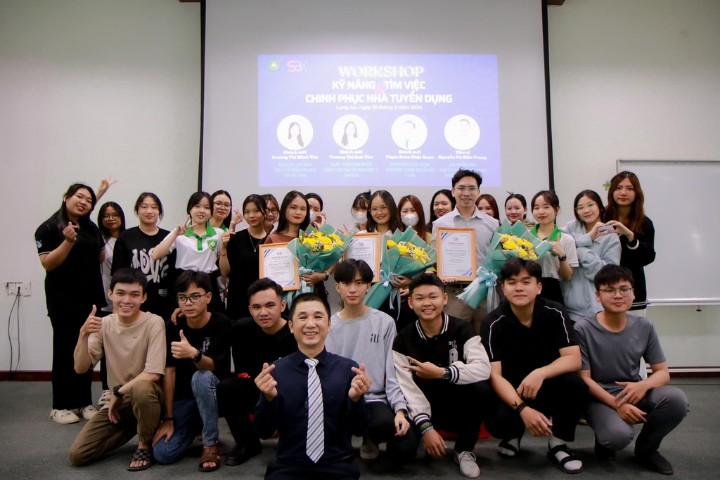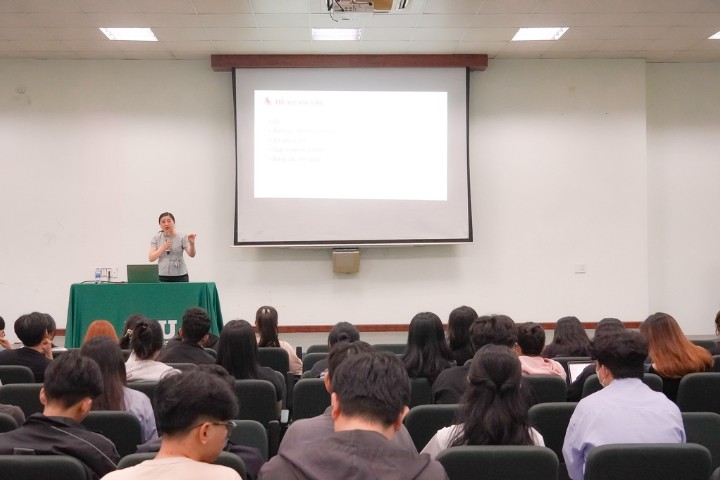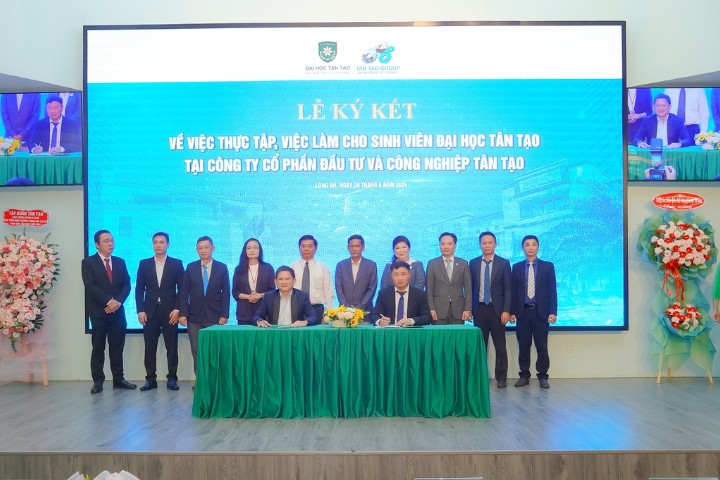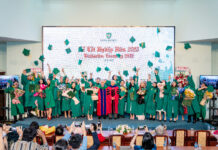In the context of the Fourth Industrial Revolution and the rapid pace of globalization, higher education is not only focused on imparting knowledge but also plays a key role in providing high-quality human resources to meet the practical needs of businesses. With the goal of sustainable development, universities in Vietnam are actively improving their training programs to better align with labor market demands.
Training based on business needs – An essential requirement of the era
Enhancing the quality of education and training to develop the necessary skills for meeting the demands of the digital economy is one of the key priorities for sustainable development in Vietnam today. University training programs are no longer limited to providing basic knowledge; they must now focus on equipping students with practical skills, creative thinking, and the ability to quickly adapt to modern work environments.

Many universities have proactively developed and adjusted their training programs based on mandatory minimum credit requirements while integrating content related to market and business needs. Additionally, the accreditation and evaluation of training quality have been emphasized to ensure that graduates meet international standards and employer expectations.
Tan Tao University – Strengthening the connection between education and practice
Tan Tao University is a prime example of developing training programs that meet business needs. The university has made significant strides in diversifying its curriculum, focusing not only on theoretical knowledge but also on providing students with practical opportunities and internships. This model not only helps students grasp essential knowledge but also fosters practical skills, enabling them to adapt quickly to the labor market.
With a liberal arts education philosophy, Tan Tao University aims to “Liberate Global Citizens,” emphasizing the training of students to become global citizens capable of international integration. The university’s programs are continuously updated, aligning with educational reform demands and the increasingly competitive labor market.

Tan Tao University goes beyond merely providing knowledge by fostering partnerships with businesses through practical experiences, internships, and financial support for students. The strong connection between the university and businesses is a key factor that makes Tan Tao’s training programs more practical, effectively meeting labor market demands.
Innovating business collaboration methods in the context of globalization
Under the influence of globalization and international integration, the labor market is rapidly evolving with the emergence of new professions and the disappearance of many traditional ones. To adapt to these changes, universities must innovate their collaboration methods with businesses, particularly in developing training program content and assessing graduation standards.

Training programs not only need to align with current demands but also anticipate future market changes. This approach equips students with the necessary skills to enter the workforce and meet the stringent requirements of businesses. Close collaboration between universities and businesses fosters a strong connection between education and practical needs, providing tangible value to students after graduation.
Higher education – The foundation for a high-quality workforce
In the current context, higher education is not merely a place for imparting knowledge but also a bridge between learners and the labor market. The role of universities in designing and developing training programs aligned with business needs is becoming increasingly important. This not only enhances students’ employment opportunities after graduation but also contributes positively to the socio-economic development of the country.

The innovation of higher education towards practicality, meeting the needs of businesses, is an inevitable trend. This approach ensures that students not only master specialized knowledge but also acquire practical skills, quickly adapt to the work environment, and contribute effectively to the growth of businesses. Higher education, with its strategic role in workforce development, plays a significant part in building a sustainable economy that effectively meets the demands of global integration and competition.








![Học phí ngành truyền thông đa phương tiện [Cập nhật mới nhất] Học phí ngành truyền thông đa phương tiện](https://ttu.edu.vn/wp-content/uploads/2025/12/hoc-phi-nganh-truyen-thong-da-phuong-tien-218x150.png)



![Học phí ngành ngôn ngữ Trung Quốc [Cập nhật mới nhất] Học phí ngành ngôn ngữ trung quốc](https://ttu.edu.vn/wp-content/uploads/2025/12/hoc-phi-nganh-ngon-ngu-trung-quoc-218x150.png)
